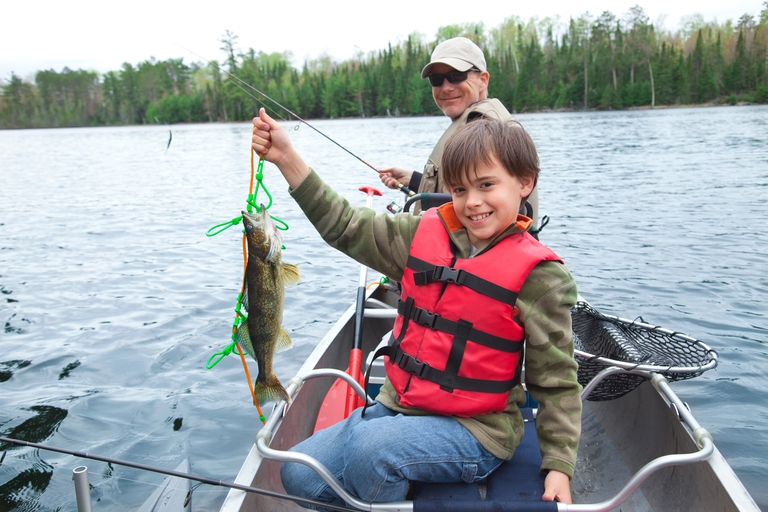It's Shark Week! 4 Reasons Why Sharks Are a Big Deal

In case you don't already know, the Discovery Channel gathers television programming about sharks every year and dubs it Shark Week.
They hope you'll stay out of the water and on your couch, glued to your TV for Shark Week programming. With millions of people tuning in to watch educational documentaries and silly insights from celebrities, there must be a reason the oceanic predators are so intriguing, right?
Want to know why sharks are such a big deal? We have four reasons to tell you today. We'll also tell you how to stay safe in the water – with or without sharks.

1. They're Old-Timers
Sharks have been around for almost 450 million years, outliving other sea-dwelling species and surviving five mass extinctions. They've even outlived dinosaurs!

2. They're Toothy
On average, sharks have up to 15 rows of teeth. Whenever they lose a tooth, another one slides up from the row behind it, taking the lost one's place.
It's kind of like a conveyor belt!

3. No Two Sharks Are the Same
With almost 400 species of sharks, it's safe to say no two sharks are the same.
In addition to varying in color, shape, and size, sharks can also vary in how they give birth. Some sharks give birth to live pups, some produce eggs that hatch internally, and others release eggs that hatch later.

4. They're Massive
The whale shark is the biggest fish in the world and can grow to be 39 feet in length or more! Lucky for us, they prefer eating plankton.
Phew!
How to Stay Safe in the Water (With or Without Sharks)
While watching Shark Week from your couch is probably a safe way to be "with" sharks, we'd guess you prefer spending time on and in the water during the prime boating months.
So, how do you stay safe in the water this season – even if you aren't boating or swimming with sharks? We have some insights for you!

Wear a Lifejacket
No matter when or where you boat, always wear a lifejacket. We also recommend lifejackets when participating in water sports like water skiing, jet skiing, and paddleboarding.
Even if sharks aren't in the water, plenty of other dangers could befall you. However, if you're wearing a PDF (personal flotation device), you're more likely to survive an accident and avoid drowning if something goes wrong while having fun.
What if a shark is involved in something happening to you in the water? In the unlikely chance that this occurs, your life jacket will help you stay afloat until someone can get you out of the water – even if you're unable to swim or keep yourself buoyant.
Bring Essential Safety Equipment
Aside from your lifejacket, your boat should carry essential safety equipment before leaving the dock. While you won't be able to blame everything that could go wrong when boating on a shark, plenty of things can go wrong on board – so it's important to be prepared.
You'll want to bring:
- A fire extinguisher
- An ignition safety switch lanyard
- Visual Distress Signals (VDS)
- A VHF Marine Radio
- Sound signalizing devices
- Throwable flotation devices
Make sure you also have a cell phone on board as a secondary resource to call for help. When using the VHF Marine Radio to make a distress call, tune it to Channel 16. Then, use a proper MayDay call to reach out for help.
What do some of these pieces of safety equipment look like? Check out our video below!
Get Safety Certified
While lifejackets and emergency flares are important, they are only a small part of what boaters need to know about safety on the water.
The best way to be fully prepared for safe and fun days on the water is to get safety certified. A boating education course covers the basics we've discussed today and much more. Even if your state doesn't require boating safety certification, it's a smart way to outsmart potential dangers on the water to avoid boating accidents and injuries that can ruin your fun.
Be Prepared for Dangers in the Water With Boater Education
Do you watch Shark Week? Are you worried about sharks ruining your fun on the water? The good news is that shark-related injuries are rare — especially if you boat on a lake or pond where sharks don't prowl.
So, while a shark attack like you might see on a show during Shark Week isn't likely to ruin your boating fun, other dangers can. Before the season gets too far underway, be sure you're safety certified to keep yourself, friends, and family safe!
Find the course for your region and start learning. Then, enjoy Shark Week!
Originally published July 6, 2015. Updated July 20, 2023.

